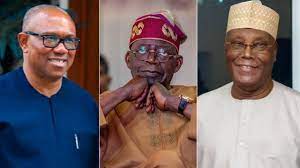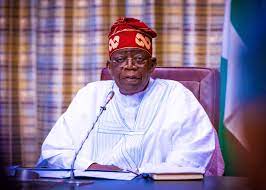
The Executive Secretary of the International Supreme Council for Peace Africa Simeon Uwah, has praised former President Goodluck Jonathan for his historic decision to concede defeat in the 2015 general elections, calling it a landmark moment for democracy in Africa.
Speaking in Uyo on Monday, exactly 10 years after Jonathan’s pivotal action, Uwah emphasized that Jonathan’s peaceful transition of power stood as a symbol of democratic maturity in a continent where political leaders often resort to violence, electoral disputes, or unconstitutional actions to cling to power.
Uwah described Jonathan’s decision as a defining moment, noting that it was a turning point for Nigeria’s democracy. “In an era where political leaders across Africa often resort to violence to hold onto power, Jonathan’s concession stands as one of the most defining moments of African democratic maturity,” Uwah said. “It was a crucial moment, and Nigeria’s democracy emerged stronger for it.”
The moment Uwah referred to was Jonathan’s phone call to Muhammadu Buhari, conceding defeat after a tense and contested election. Uwah noted that this phone call was not just a gracious act of sportsmanship but a deliberate gesture of commitment to peace, democracy, and national stability.
“This single act helped avert post-election violence, saved countless lives, and strengthened Nigeria’s democratic standing on the global stage,” Uwah added.
As Africa faces increasing political crises, including military coups, disputed elections, and rising authoritarianism, Uwah highlighted Jonathan’s concession as a model for African leaders. “Jonathan’s approach remains a crucial blueprint for democratic governance and reforms,” he said, stressing that it is imperative for African leaders to follow suit.
Uwah also called on the African Union (AU) and the Economic Community of West African States (ECOWAS) to institutionalize peaceful transitions of power and ensure that these democratic standards are safeguarded across the continent.
“Political transitions should be collaborative, not adversarial,” he urged. “Future leaders must embrace bipartisanship and national reconciliation as core principles of governance.”
In closing, Uwah recalled Jonathan’s powerful words from that moment: “My ambition is not worth the blood of any Nigerian.” He called for African leaders to adopt this mindset moving forward not just in rhetoric but in practice.





